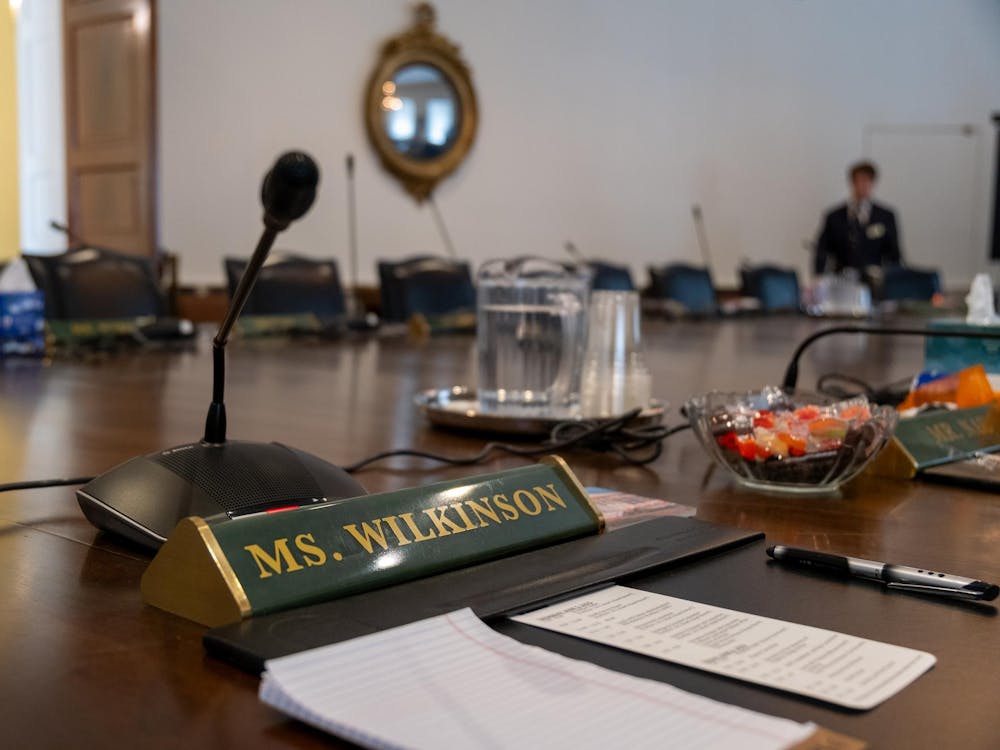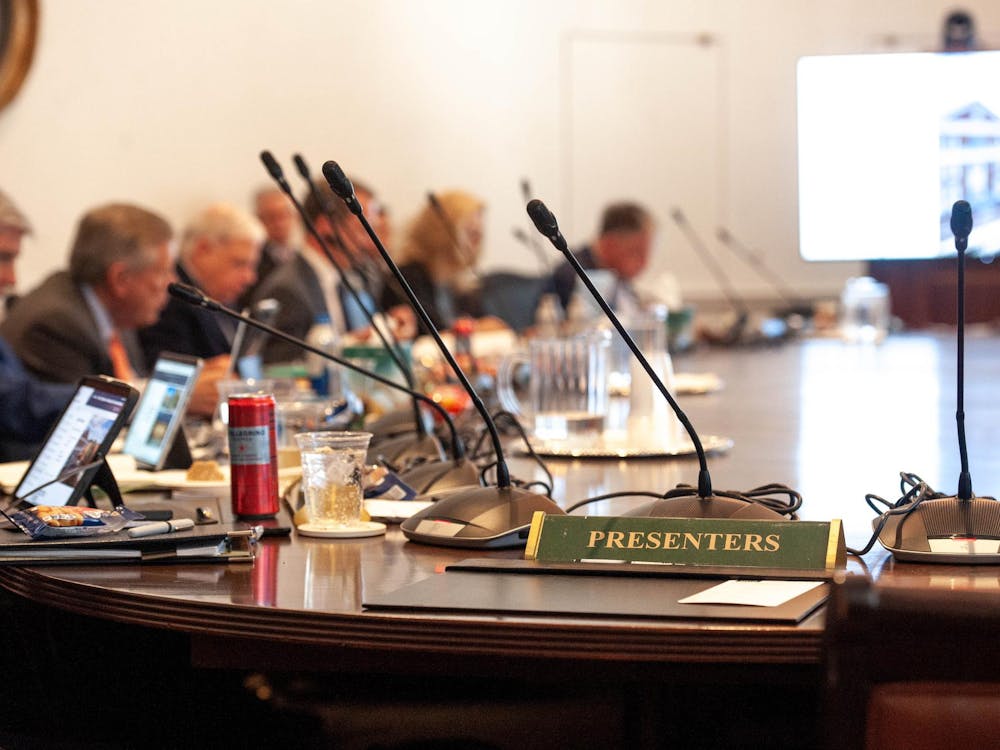Three current and six former University students were indicted on state and federal possession and distribution charges in the largest drug investigation ever at the University, officials announced yesterday.
Four other non-University students also were indicted, and police still are seeking three suspects.
All 13 arrested have been released on bond.
The investigation, which began in the fall of 1999, was headed by the Jefferson Area Drug Enforcement Task Force.
The operation was a cooperative effort between University, Charlottesville, Albemarle and Virginia State police departments and the Federal Drug Enforcement Administration. It was conducted partly in response to complaints of drug use made by concerned students.
University students came forward with "information to rid our community of this illegal activity," University Police Chief Michael Sheffield said.
The operation was "designed to identify and investigate sources of illegal drug distribution within the University of Virginia student population," Sheffield said in a press conference yesterday afternoon.
The investigation included undercover buys, search warrants and a historical conspiracy investigation. In such an investigation, evidence is built up over time because police believe a distribution charge may not be based on one incident only.
University Police Lt. Bryant Bibb said undercover "drug buys were made throughout the city," but a majority were made on Grounds and outdoors rather than in private residences.
Bibb said that except for those charged with conspiracy, most suspects allegedly were operating independently.
Although officials conceded that both police and students were involved in the undercover investigation, they are witholding information about the extent of student involvement and details about the buys because the investigation is ongoing.
Sheffield said student involvement was "critical." In many cases, students were able to confirm information the police had received.
"Our view is that illegal drug use is not something we will tolerate on Grounds," United States Attorney Robert P. Crouch Jr. said.
The nationwide increase of ecstasy use was reflected in the operation, in which police seized 2,466 tablets of ecstasy at an estimated street value of $36,990.
Special Agent Frank Chellino of the DEA's Washington field office said ecstasy has caused a number of deaths across the country, because people cannot be sure what they are purchasing. Ecstasy is mostly a synthetic drug, and its quality may vary greatly from dealer to dealer.
Often a substitute drug or pharmaceutical lookalike is sold in place of ecstasy when demand is high and supply is low. This often leads to overdoses and dangerous drug interactions.
"It frees your inhibitions and hypes you up," Chellino said.
In addition to ecstasy, police seized 846 grams of marijuana, 29 grams of cocaine and 210 dosage units of LSD, with a total street value of $9,532.
Second-year College student Jonathan Samuel Clark was charged Oct. 11 in a two-count federal indictment with conspiracy to distribute ecstasy and possession with intent to distribute ecstasy, along with Alexandria resident Stephen Michael Mcgee II.
If convicted, Clark could face 40 years imprisonment and/or a $2 million fine.
Former students Kenneth Seidel and Tony Beeler, both of Charlottesville, were charged Oct. 11 in a four-count indictment with conspiracy to distribute and possession to distribute ecstasy with Joo Nam Lee, of Roanoke. If convicted, the three could face 80 years imprisonment and a fine of $4 million each.
Two University students face charges resulting from state indictments.
Third-year College student Eric Hopkins was arrested May 4 on a state indictment for distribution of ecstasy, and second-year College student Matthew Harbour was arrested Oct. 9 on a state indictment for possession of LSD and opium.
The remaining six suspects were charged on other state and federal indictments.
University President John T. Casteen III declined to comment specifically on the arrests but said he is "concerned, as virtually everyone here is, about drugs within the University community."
This is not the first large drug operation the University has seen. On March 22, 1991, three fraternity houses - Delta Upsilon, Phi Epsilon and Tau Kappa Epsilon - were raided, resulting in the seizure of marijuana, ecstasy and LSD and the arrest of 12 students. The bust ultimately led to the collapse of two fraternities and prison time for many of the students.
Yet officials nearest the investigation are quick to point out that the recent string of arrests is completely unlike what happened in the 1991 incident, dubbed Operation Equinox.
Unlike Equinox, the recent arrests "were not centered on the fraternity houses," Bibb said.
Charlottesville Police Chief J.W. "Buddy" Rittenhouse said the police departments have been criticized in the past for focusing investigations only on one part of the community, but the recent arrests were very comprehensive, encompassing areas throughout Charlottesville.
Trial dates for the defendants have not yet been set.






